The moment you exit your car in front of the Lake Geneva Public Library, the sound is overwhelming.
Millions of Brood XIII 17-year cicadas have swarmed the southeastern Wisconsin city, and their chirping chorus now provides a constant buzz throughout the community. Piles of living and dead cicadas, as well as crunchy cicada carcasses, litter the ground. The sour stench of rotting insects fills the neighborhood air. Virtually every tree in town is crawling with the bugs.
The cicadas first emerged in Lake Geneva about three weeks ago, and their population is currently at its peak, said PJ Liesch, director of the University of Wisconsin-Madison’s Insect Diagnostics Lab. The insects spend the vast majority of their 17-year lives underground as juveniles, feeding on tree sap and hiding from predators. Every 17 years, they emerge as adults to mate and lay eggs before dying after four to six weeks. This is the first time Brood XIII has emerged in Wisconsin since 2007, and they’ll be gone by the beginning of July.
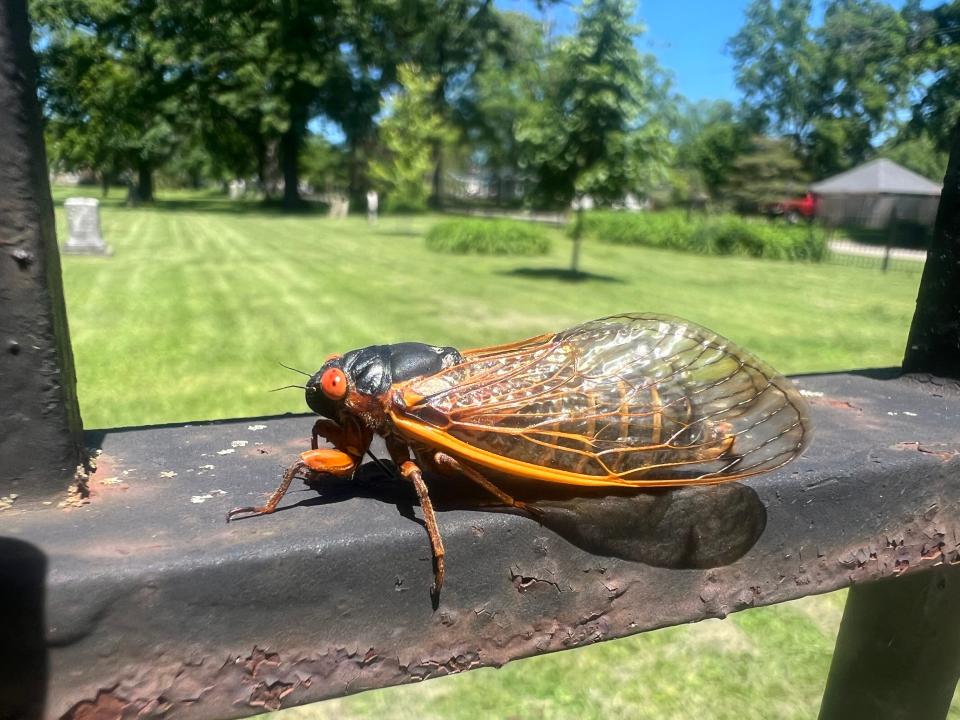
The cicadas don’t emerge uniformly throughout the state. They require sufficient trees and can’t live in overly developed areas. Some places, like Milwaukee County, are free of the bugs, while others have hundreds of thousands, or even millions, of them.
Lake Geneva, Liesch said, is Wisconsin’s number-one “cicada hotspot” and the best place to see them in the state, especially along the north side of Geneva Lake. Like April’s solar eclipse, many people are excited to witness this rare natural phenomenon.
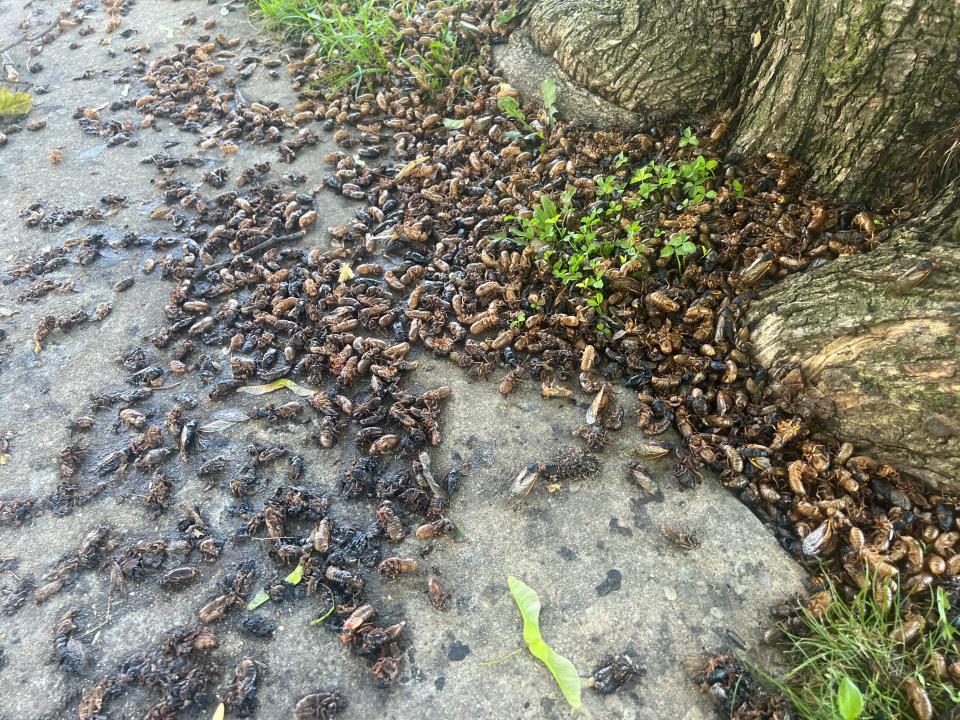

While walking in a line behind their teacher in the schoolyard Wednesday afternoon, young students at Lake Geneva’s Central-Denison Elementary discussed the cicadas covering the grass.
“One landed on my head,” an enthusiastic little girl exclaimed.
“Are there any on me?,” a boy nervously asked his classmate.
The cicada hype is so great that, on Saturday, Visit Lake Geneva and the Lake Geneva Public Library are hosting “Cicadapalooza,” a free, educational celebration of the insects. Members of the UW-Madison Entomology Department, including Liesch, will give educational tours and talks, and adventurous eaters can even try cicada ice cream, tostadas or cicada-infused beer.
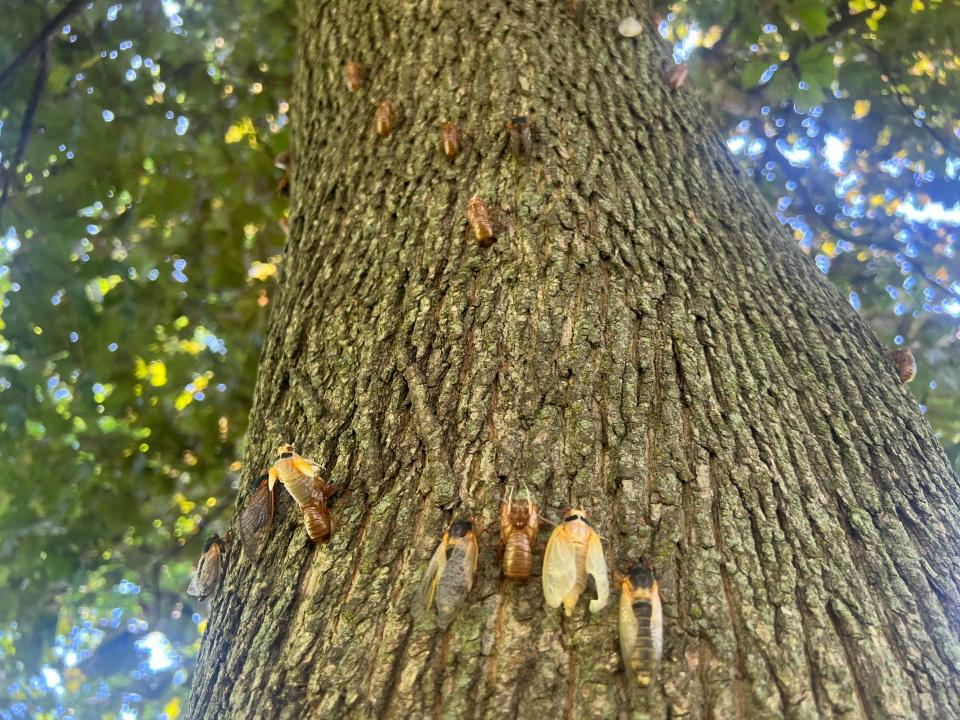

Cicadas can be heard throughout Lake Geneva
The cicadas are at their loudest between 10 a.m. and dusk, Liesch said. Still, you can hear them outdoors (and sometimes even through the windows and walls indoors) in some parts of Lake Geneva all day and night.
“You get used to it,” said Stephanie Klett, president and CEO of Visit Lake Geneva. “It really grows on you because, when they first get out of the ground, it’s just a really quiet buzz. … It’s interesting because, when I have my morning coffee, instead of television or radio, I just listen to the buzz of cicadas.”
Others describe the cicadas’ sound as “eerie” or “annoying.”
Klett also said parents have told her that some children with autism or other sensory issues are struggling with the constant noise.
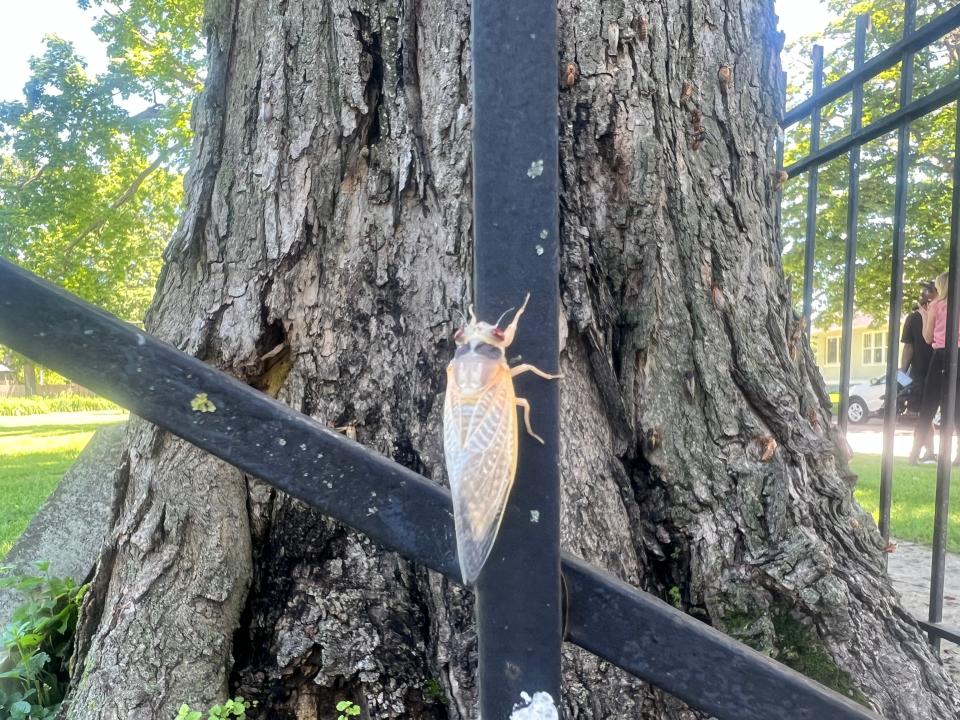

The earliest reports of 17-year cicadas came from the 17th century
While the cicadas may be a nuisance to some nowadays, for people a few hundred years ago, the bugs were truly terrifying.
The earliest European reports of 17-year cicadas came from the Plymouth colony in New England in the 1630s. While species that emerge in shorter intervals exist in other parts of the world, 17-year cicadas are only known to live in the eastern half of North America, Liesch said. So, early settlers were unfamiliar with the insects, and some assumed the worst.
“There were biblical connotations, plagues of Egypt and that sort of thing,” Liesch said.
Additionally, the W-shaped markings on some cicadas’ wings were viewed by some settlers as an omen of a coming war.
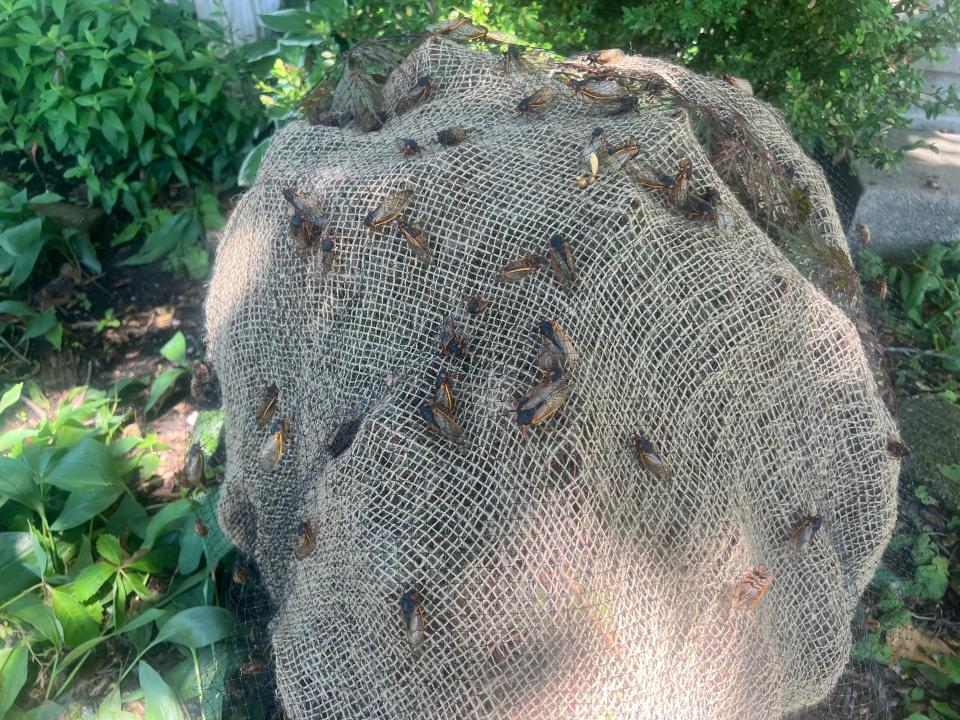

As early scientists tried to identify the insects, some mistook them for flies or locusts, leading farmers to blame them for destroying crops.
We now know that 17-year cicadas do not bite or sting, and they do not eat crops. Juvenile cicadas eat tree sap underground, and adult cicadas’ time above ground is so brief that they barely eat at all, Liesch said.
Cicadas pose little threat to most plants, though females can damage young trees by slitting them open with their sharp backsides to lay eggs. Experts recommend covering young trees and other vulnerable plants with netting to prevent insect damage.
More: You can try beer, and a dessert, made with cicadas at Lake Geneva’s ‘Cicadapalooza’
More: Tons of cicadas will emerge in Wisconsin soon. Here’s how to protect your plants and gardens
This article originally appeared on Milwaukee Journal Sentinel: Millions of 17-year cicadas swarm, chirp throughout Lake Geneva
Source Agencies

